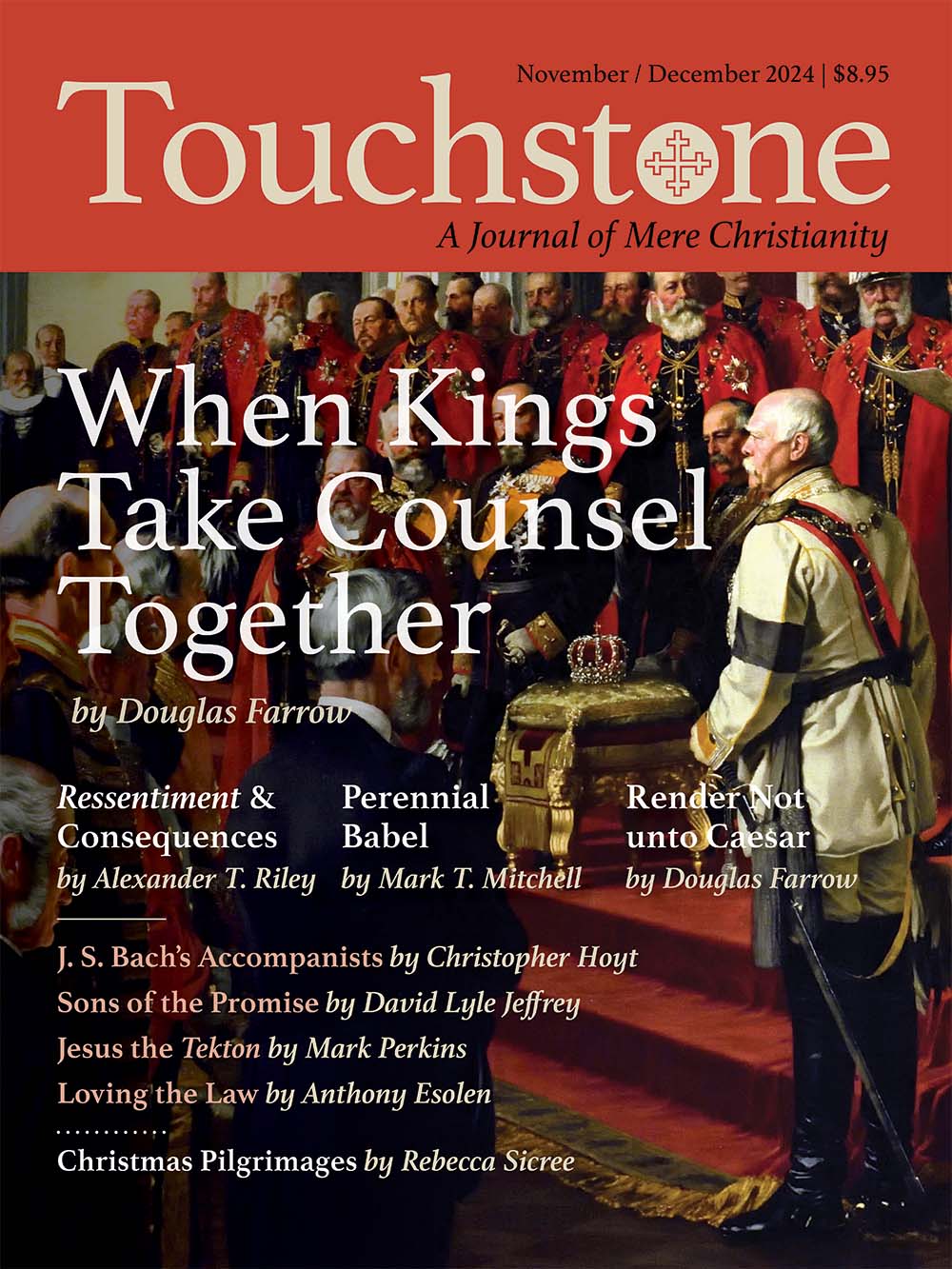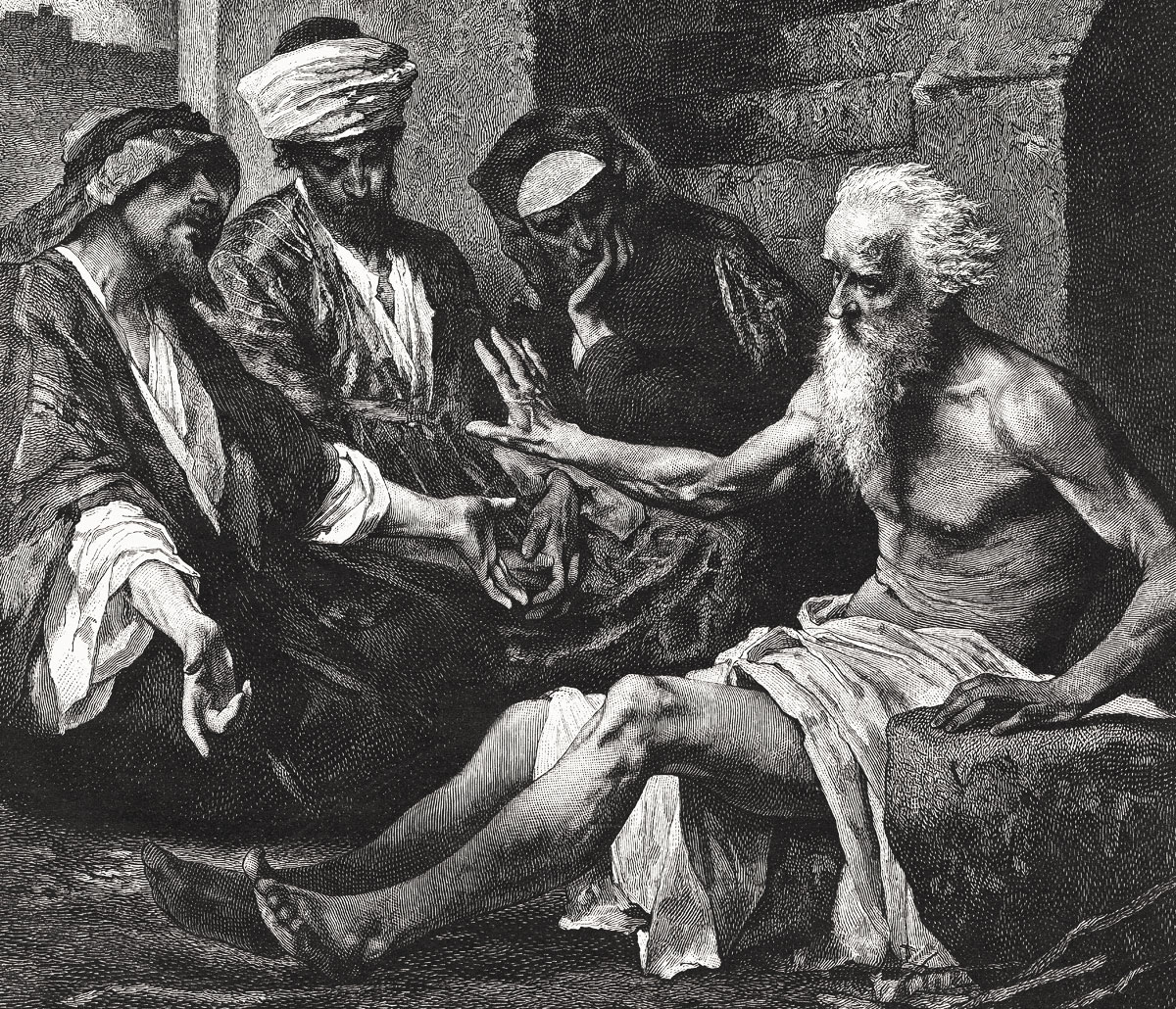Ressentiment & Consequences
on Wokeism & What Scheler Got Right About Nietzsche’s Insight
“God is dead . . . And we have killed him.”
It is perhaps the most recognized, most polarizing quotation in modern philosophy, evoking energetic emotional responses at both ends of the faith binary. Friedrich Nietzsche wrote it just a few years before his descent into madness. It’s almost certainly the quotation from the controversial thinker most known by Christians. And though its meaning is arguably more complex than is typically asserted, for obvious reasons it has set the tone for a prickly relationship between the faithful and the provocative German philosopher.
Nietzsche’s antagonism to Christianity is not limited to that phrase, of course, and this is so even though, if one combs through the entirety of his work, one finds a position with respect to Christianity that is more nuanced than is commonly believed. It is not hard to comprehend why much Christian engagement with him is straightforwardly hostile.
It is certainly not my intention to endeavor to convince Christians to completely suspend their suspicions of Nietzsche. The rebellious son of a pastor gives us abundant evidence that he has misunderstood the faith of his father, and his influence on those whose hatred of the faith is not nuanced by any of Nietzsche’s intelligence has been profound.
But not all the ideas of the iconoclastic author of Thus Spake Zarathustra are useless to us. One in particular, arguably his most important, is eminently recuperable, even if we must chastise and correct Nietzsche for misunderstanding how it applies to Christianity.
This idea is that of ressentiment, a French word meaning “the memory one retains of a wrong, an injustice, or an injury that one suffered, with the desire for vengeance.”
In Beyond Good and Evil, Nietzsche argues that “a slave revolt in morals” had commenced when the Jewish “prophets fused ‘rich,’ ‘godless,’ ‘evil,’ ‘violent,’ [and] ‘sensual’ into one and were the first to coin the word ‘world’ as a term of infamy.” An inversion of values takes place here, he goes on, in which the lowly are raised to the level of the sacred and what was once holy is reframed as debased. Though he would write with vigorous energy against German anti-Semitism and defend other aspects of the Jewish contribution to the West, there is little room to challenge the charge that on this point his thought is pointedly critical of what he takes to be the core of Judeo-Christian culture.
Ressentiment culture insists on turning itself into a hapless and righteous victim of the wicked depredations of the oppressor, which must be transformed into an evil entity simply because it does not share the culture of those it dominates.
In the Nietzschean view, ressentiment evaluates the moral status of persons based on the extent to which they are seen as victims of some monstrous, immoral enemy. Thus, the only framework of values that kind of culture can produce is not self-sufficient but dependent on the desire for revenge against the oppressors. From this, we get a perverse celebration of weakness and victimization and a hatred of noble value systems that emphasize the overcoming of suffering, even its potentially positive value.
Scheler’s Critique: Victims & Suffering
How then can Christians recuperate this concept?
A generation later than Nietzsche, a critical contribution to this interpretive work was made by another, lesser-known German philosopher, who died just under a century ago. Max Scheler was considered one of the greatest philosophers of his time, and he should be better known in ours. Born on August 22, 1874, into an Orthodox Jewish family, he was fifteen when Nietzsche fell into the abyss of insanity.
The status of the victim and his suffering is of primary importance in Scheler’s thought on ressentiment. A suffering victim is, of course, at the very core of Christianity. Yet Christians are not enjoined to worship victimhood but rather the saving power that God’s grace gives to lift up those who have suffered. Love is the moral core of Christian value, and revenge, even against those who have actually harmed the Christian, is explicitly rejected. It is the power of grace that makes this possible.
Secular progressive political ideologies that sometimes claim some affinity with Christian morality have rejected the spiritual redemption and strength gained by supernatural grace and turned victims into moral models. No need to overcome suffering is required in contemporary Woke thinking. Indeed, such a goal is not attainable for victims because the oppression suffered is so great. Instead, an endless vindictive energy is focused on finding and punishing alleged perpetrators of injustice as a means of purifying the world.
Scheler traces the difference here back to the Christian conception of love, which is unique in the history of the West and indeed of the world. There was a fundamental break between the ancient conception of love and that of the Christians. For the Greeks, love required the lower aspiring toward the higher. For the Christian, it is the contrary that defines love. As Scheler puts it, “the nobler stoops to the vulgar, the healthy to the sick, the rich to the poor, the handsome to the ugly, the good and saintly to the bad and common, the Messiah to the sinners and publicans.”
Nietzsche’s view was that such an attitude of noble inclination toward the lowly would necessarily taint the nobility of the former. The imperative of ressentiment is simply to reverse the polarity and call the lowly superior, precisely because it is lowly. The result is the leveling of all value.
Egoism & Altruism
But is this movement of the noble toward the poor a selfless act in Christianity? Nietzsche certainly sees it as such, and therefore rejects this position as self-abnegation. This might seem a legitimate interpretation at the surface level, but only if we fail to understand the deep Christian motivation for the act and what it is understood to accomplish. Self-renunciation in this orientation ends, according to Scheler, in “the person eternally win[ning] himself.” Helping those below us is the expression of love, but its purpose and its ultimate good are not fundamentally to be evaluated in the material effect it has on the sufferer.
This is where—and Nietzsche correctly recognized this—socialist political ideologies go wrong and fall into ressentiment. Let us quote Scheler here at length, as he makes the point eloquently:
When the rich youth is told to divest himself of his riches and give them to the poor, it is not in order to help the “poor” and to effect a better distribution of property in the interest of general welfare. Nor is it because poverty as such is supposed to be better than wealth. The order is given because the act of giving away, and the spiritual freedom and abundance of love which manifest themselves in this act, ennoble the youth and make him even “richer” than he is.
In the Woke view, by contrast, there can be no assertion of an accomplishment of this spiritual nature. The movement toward victims by victimizers necessarily leads the latter to a recognition of their irreparably corrupted natures. What results, Scheler tells us, is that the victimizer recognizes his “inability to ‘remain at home’ with [him]self.” He becomes filled with self-loathing, “by hatred of [his] own weakness and misery.” Terrified of gazing too closely at what he understands as his own inferiority, he turns to worshipful adoration of his purported victim, “not because of [the victim’s] worth, but merely for the sake of his ‘otherness.’” One example of this, in another context, is what is commonly referred to as “white guilt.”
For the utopian revolutionary then, altruistic acts are little more than veiled expressions of self-hatred. Only self-annihilation in service of the oppressed is a morally worthy goal. This is the end to which whites are called in Wokeist antiracism, at least theoretically, even if relatively few take it up practically in their own lives.
All doctrines of socialism or the social gospel, of which Wokeism is the most recent incarnation, reject the immortality of the individual soul and turn instead to utopian projects of this-worldly transformation.
Equality & Equity
At the core of ressentiment is a relativism of value. All are equal at bottom here, and only the victim’s suffering—again, not its overcoming, but its vibrantly celebrated, proudly proclaimed presence—elevates him above his oppressors.
Scheler finds no parallel to a ressentiment value of equality and equity in Christianity because Christianity distinguishes between carnal humanity, in the state of nature, and reborn humanity, in the state of grace.
Neither does Scheler find any “love of mankind” per se in Christianity. “Mankind” is nothing more than an abstraction, a conceptual category that inevitably takes us away from the real world of real, existing human individuals. Christ enjoins us to love our neighbor, not the abstraction “mankind.” It is only the concrete persons next to us, real men and real women, the ones to whom we can speak, the ones whose hands we can shake—it is only these that harbor a soul. “Mankind,” by contrast, is forever soulless.
Likewise, “humanitarian love” has no interest in souls. Scheler observes that it seeks only the “advancement of general welfare.” That is, it seeks to stop suffering. This point cannot be sufficiently emphasized. Christianity does not seek the end of worldly suffering. Far from it. That suffering is our main proof of the fallenness of our world and our condition, and it is the testing ground on which we endeavor to make our souls more perfect for the world to come. “Through the burning of his body,” Scheler writes, “his soul was to be specially commended to God’s grace.”
Note well here, it is not our suffering in itself that is our marker as recipients of grace. This is the ressentiment position: the sufferer qua sufferer is to be worshiped, and his victimhood turned into the greatest good. The Christian, by contrast, wants to overcome suffering, and only in its mastery can the effective soul-work be done.
A further, pristine illustration of the differences between these conceptions of the value of suffering and its relationship to ultimate value is evident in the creation of the modern welfare state. Humanitarians perhaps believe they are motivated by love of individuals in creating the impersonal institution of welfare, i.e., material goods produced by the political force of taxation and with the end of the material improvement of human existence in this world. But this has intrinsically little, if any, relationship to the ultimate Christian view of good, which is the salvation of souls. In creating a welfare state and answering to material demands, one effectively reduces opportunities for the spiritual advance of both rich and poor, who are now faced with fewer spiritual opportunities both to rise to suffering and to bend to alleviate it.
Can Nietzsche Be Redeemed?
There is no doubt that Nietzsche denigrated much of Christian practice in his day, especially in the Protestantism of his native country, which he described in one of his last books as “the most incurable kind.” And yet Nietzsche seemed to recognize an essential element of truth in Judeo-Christian morality despite himself.
In Beyond Good and Evil, he reflects on the nature of suffering in a way not unsympathetic with the Christian view. He applauds “[t]he spiritual haughtiness . . . of every human being who has suffered deeply” and proclaims that “how deeply human beings can suffer almost determines their order of rank.” Suffering is, for Nietzsche, an element in noble culture, but in a way wholly antithetical to the ressentiment-dominated individual’s wallowing in and glorification of victimization and consonant with the Christian’s value of overcoming. He who has suffered much and not given in to bitterness or revenge gains
the harrowing certainty, with which he is wholly permeated and colored, that by virtue of his suffering he knows more than even the cleverest and wisest can know, that he is familiar with, and was once “at home” in, many distant, terrible worlds of which “you know nothing!” . . . Profound suffering ennobles; it separates.
In his last year of sanity, in Twilight of the Idols, he makes the same point still more succinctly: “The most spiritual human beings, assuming they are the most courageous, also experience by far the most painful tragedies; but it is precisely for this reason that they honor life because it brings against them its most formidable weapons.”
Nonetheless, while Nietzsche accurately identifies the cultural and philosophical pathology of ressentiment, as well as noting its relationship to Christianity, he never acknowledges that it represents a distortion of Christian teaching, indeed a kind of heresy. This is, as Scheler demonstrates, of the utmost importance.
Nietzsche admired Pascal greatly, though he also criticized him, and considered him perhaps the most tragic victim of Christianity. Like Nietzsche, Pascal gazed at the infinity of indifferent time and space. Unlike him, the Frenchman found the solution to that cold nothingness in God’s existence. Like many another confident young man of his time and since, Nietzsche believed he could brave this emptiness alone. It was a test of his strength, the kind of test young men tend to gravitate toward and toward which they frequently demonstrate unjustified confidence. Would he, perhaps, have eventually understood the fruitlessness of this approach had he but lived long enough as a sane man?
The author of The Anti-Christ is buried outside the little church in Röcken where his father was pastor. Given another two decades of healthy life, it is perhaps not too much to imagine that he might have returned to his father’s faith and become one of modernity’s most formidable Christian thinkers.
Alexander T. Riley is a senior fellow at the Alexander Hamilton Institute for the Study of Western Civilization and a member of the board of directors of the National Association of Scholars.
subscription options
Order
Print/Online Subscription

Get six issues (one year) of Touchstone PLUS full online access including pdf downloads for only $39.95. That's only $3.34 per month!
Order
Online Only
Subscription

Get a one-year full-access subscription to the Touchstone online archives for only $19.95. That's only $1.66 per month!
bulk subscriptions
Order Touchstone subscriptions in bulk and save $10 per sub! Each subscription includes 6 issues of Touchstone plus full online access to touchstonemag.com—including archives, videos, and pdf downloads of recent issues for only $29.95 each! Great for churches or study groups.
Transactions will be processed on a secure server.
more on culture from the online archives
more from the online archives
calling all readers
Please Donate
"There are magazines worth reading but few worth saving . . . Touchstone is just such a magazine."
—Alice von Hildebrand
"Here we do not concede one square millimeter of territory to falsehood, folly, contemporary sentimentality, or fashion. We speak the truth, and let God be our judge. . . . Touchstone is the one committedly Christian conservative journal."
—Anthony Esolen, Touchstone senior editor














